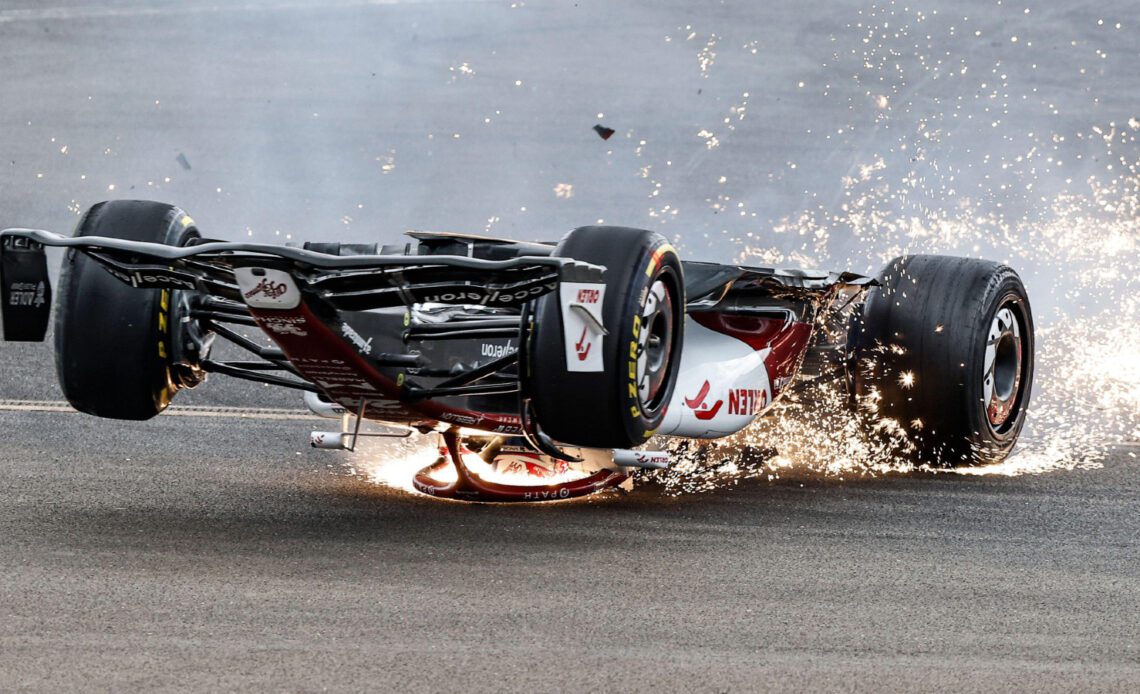The FIA will introduce “more stringent measures” for F1’s rollhoops in 2023, but what exactly those will be has yet to be decided.
Zhou Guanyu miraculously escaped without injury from a horrific crash on the opening lap of this year’s British Grand Prix, the Alfa Romeo flipped onto its rollhoop and Halo.
The rollhoop broke off, leaving just Halo to protect the driver as he slid across the track and through the gravel trap where the car dug in, flipping him over the tyre barrier into the catch fencing.
Zhou was taken by ambulance to the medical centre, thankfully leaving under his steam a few hours later.
F1’s Technical Advisory Committee met on Thursday to discuss that and other matters with the FIA announced that new rules regarding the rollhoop that will come into effect next season.
An FIA statement read: “The teams confirmed their availability to introduce more stringent measures on the rollhoops for 2023, and the FIA undertook to complete the relevant analyses, and to communicate to the teams new requirements for the safety of the rollhoop.”
What exactly those measures will be has yet to be decided.
Zhou says that his roll hoop impact exceeded the FIA requirements.
“I think the first hit was much harder than what they test for the safety test. This was like a few times harder than the actual numbers we want in that.”
He said, the team still investigates.#F1 #AustrianGP pic.twitter.com/mWaeguV7Ev
— Ahmet Cir (@AhmetCirF1) July 7, 2022
Alfa Romeo are still investigating the collapse of the rollhoop of Zhou’s car.
“It’s still under investigation, and we’ll share all the information about the crash with the FIA,” said team boss Fred Vasseur.
“The first [issue] is that the crash was something like two times more than the load of the crash test.
“I don’t know if you had the look on the tarmac, but we dug a groove into the tarmac something like four or five centimetres deep.
“It doesn’t matter the level of the crash test, you can always find something a bit bigger, and we’ll have to take action on our side and with the FIA to see how we can improve safety.”
As for the driver, he says his first hit when his car was flipped was harder than what the safety test mandates.
“I think the first hit was much harder than what [the team] investigated through the safety test, a few times harder than the numbers we want,” Zhou said.
“So that’s obviously created a problem.”
Click Here to Read the Full Original Article at News – PlanetF1…

